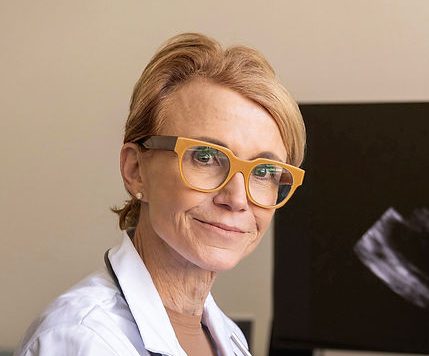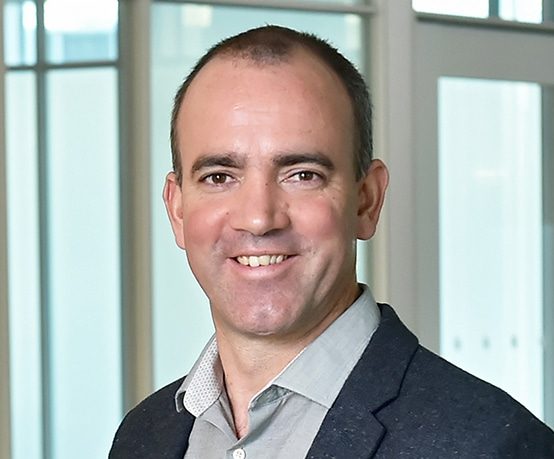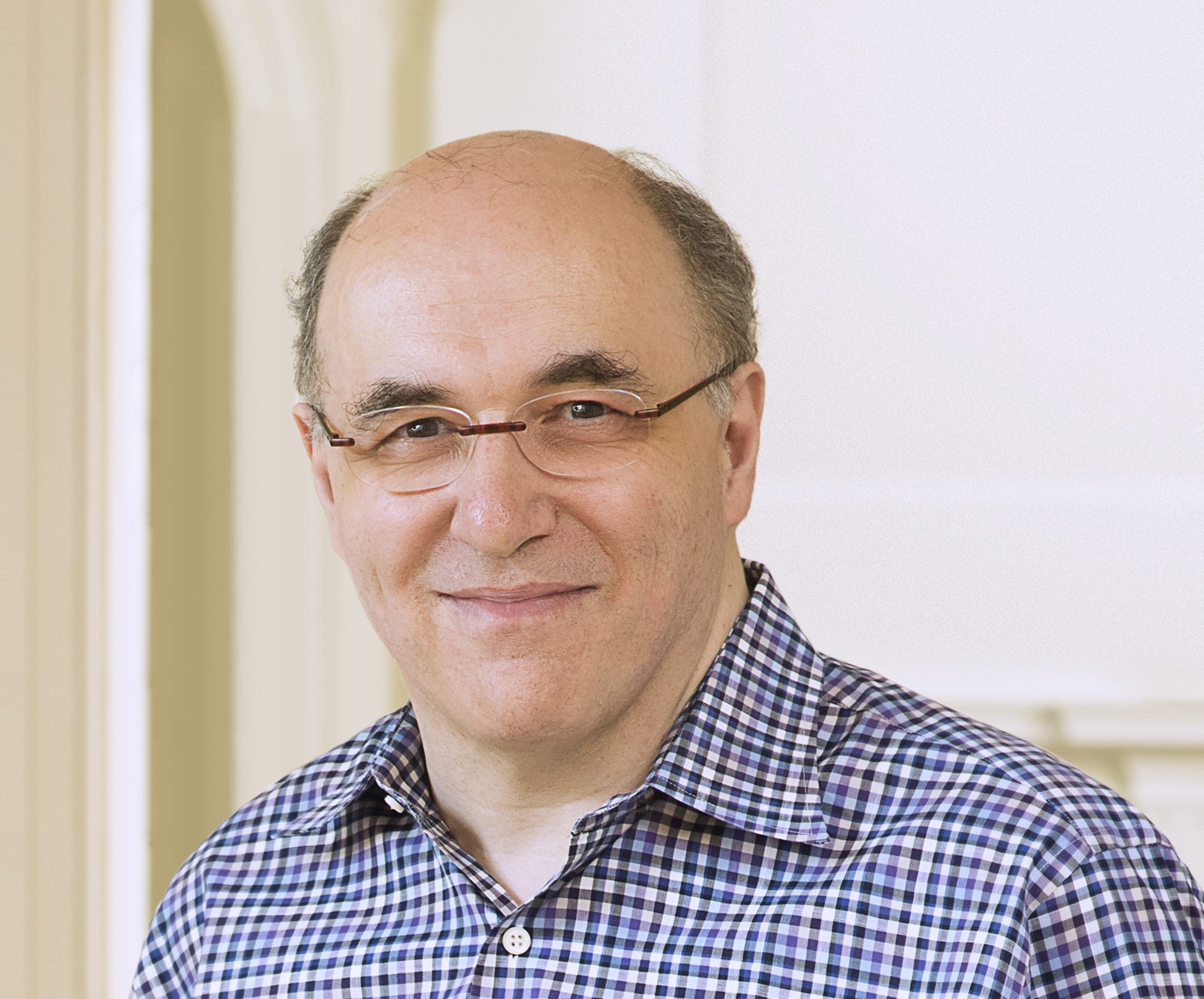World-Renowned Scientists

Barbara Natterson-Horowitz
Barbara Natterson-Horowitz, M.D., is a cardiologist and psychiatrist who turns to the natural world for insights into human health and development. Faculty in the Harvard-MIT HST Program, Harvard’s Department of Human Evolutionary Biology and Professor of Medicine at UCLA, she studies a diverse range of animals and disorders from congestive heart failure in okapi, bats and wallabies, to compulsive disorders in birds, cats and horses. She is the co-author of NYT bestseller, Zoobiquity, which was a Finalist in the American Association for the Advancement of Science (AAAS)’s Excellence in Science Books Award, a Smithsonian Top Book of 2012, a Discover Magazine Best Book of 2012, and the China Times Best Book of 2012. Zoobiquity has been translated into ten languages and has been a common read at universities across the country.
Dr. Natterson-Horowitz was the invited keynote speaker at the 2019 Nobel Conference in Stockholm, Sweden.

Constantina Theofanopoulou
Constantina Theofanopoulou is an Associate Research Professor at Hunter College, City University of New York, a Visiting Associate Professor at Rockefeller University and a Visiting Scholar at New York University. She is directing the Neurobiology of Social Communication lab, which is co-funded by both Hunter College and Rockefeller University. Her overall goal is to dissect the neural circuits of complex sensory motor behaviors that serve social communication, essentially, speech and dance, and to identify possible therapies for disorders that include deficits in these behaviors.
For her Ph.D., she worked on the neurobiology of the social reward mechanisms underlying speech, specifically on the role of oxytocin in vocal learning in songbirds and humans. This project led her to realize that the oxytocin/vasotocin field was suffering from an inconsistent gene nomenclature that was hampering translational research. To mitigate this, during her Post Doc (Rockefeller University), she used novel genomic methods and proposed how gene nomenclature should be revisited, aiming at a universal vertebrate gene nomenclature.

Nim Tottenham
Professor Nim Tottenham is a developmental neuroscientist and professor of psychology at Columbia University, where she leads the Developmental Affective Neuroscience Laboratory. Her research focuses on changes in amygdala-prefrontal cortex circuitry across childhood and adolescence and the effect of early experiences on how these circuits develop.
Professor Tottenham is a Fellow of the Association for Psychological Science and of the Society for Experimental Psychologists and has received several prestigious awards for her contributions to developmental neuroscience, including the National Academy of Sciences Troland Research Award. One of her most cited works is the NimStim set of facial expressions, consisting of 672 photographs of various facial expressions, which is used widely in research on working memory, self-regulation, and clinical disorders. Her scientific contributions in developmental neuroscience have also been recognized by the American Psychological Association’s Distinguished Scientific Award for Early Career Contribution to Psychology, the Flux Award, and the American Psychosomatic Society.

Rein Ulijn
Rein Ulijn is the founding director of the Nanoscience Initiative at the Advanced Science Research Center at The Graduate Center of the City University of New York. He was previously professor and vice dean of research at the University of Strathclyde in Glasgow, Scotland, where he continues to hold a position. Prior to this, he started his independent career at the University of Manchester. His education was from the University of Wageningen, Netherlands (M.Sc. biotechnology), Strathclyde (Ph.D. physical chemistry), Edinburgh (postdoc in chemistry). He has held several personal fellowships and won a number of awards, including the RSC Norman Heatley Medal and Royal Society Wolfson Merit Award. He was elected to the Fellowship of the Royal Society of Edinburgh (Scotland’s national academy of science) in 2014.

Cumrun Vafa
Cumrun Vafa is a theoretical physicist who received his BS in Math and Physics from MIT in 1981 and his PhD in Physics from Princeton University in 1985 under the direction of Edward Witten. After completing his studies, he joined the faculty at Harvard University, where he has been teaching ever since. In 2018, he was appointed Harvard’s Hollis Professor of Mathematicks and Natural Philosophy.
Vafa’s primary area of research is string theory, which is at the forefront of efforts by theoretical physicists to find a unified fundamental theory of nature in a consistent quantum theory. The study of string theory involves investigating the mysteries of confinement of quarks inside atomic nuclei and exploring the enigmatic properties of astrophysical objects such as black holes. As a result, string theory is at the crossroads of many fields, including mathematics, particle phenomenology, and astrophysics. Vafa’s research has involved all these aspects, and he has made significant contributions to the field of string theory. One of Vafa’s most notable contributions is his work on the Bekenstein-Hawking entropy, which describes the amount of entropy that a black hole can have. He has also worked on topological strings, which aim to elucidate new mathematics originating from string theory and use these techniques to uncover the mysteries of black holes. In addition to his research, Vafa has authored over 300 research articles in the fields of string theory, mathematics, and physics.
Vafa’s groundbreaking contributions to string theory have earned him many accolades throughout his career. He is a member of both the American Academy of Arts and Sciences and the National Academy of Sciences and has received a number of awards and recognitions for his work, including the Dirac Medal of ICTP, the AMS Leonard Eisenbud Prize for Math and Physics, the APS Dannie Heineman Prize in Mathematical Physics, and the 2017 Breakthrough Prize in Fundamental Physics. His research and teaching continue to have a profound impact on the field of theoretical physics.
World Science Scholars Courses

Charles Vörösmarty
Charles J. Vörösmarty, Ph.D., is the Founding Director of the Environmental Sciences Initiative at the CUNY Advanced Science Research Center. Dr. Vörösmarty’s research focuses on the development of computer models and geospatial data sets used in synthesis studies of interactions linking the water cycle, climate, biogeochemistry and anthropogenic activities. He has modeled local, regional, and continental to global-scale dynamics of water balance, discharge, and constituent fluxes in river systems, including assessments of the impact of large scale water engineering on the terrestrial water cycle. His work on human-water interactions includes analysis of databases depicting reservoir construction worldwide and how they generate downstream coastal zone risks, global threats to human water security and aquatic biodiversity, and the use of natural capital and engineering to realize global water security. His recent work focuses on the capacity of traditional engineering (gray) and nature-based (green) infrastructure to contribute to the performance of Food-Energy-Water Systems (FEWS) as well as global water security more generally. In 2018, he helped lead a U.S.-Hungarian graduate student research project on sustainable regional re-development in western Hungary, where he continues to advise the government and academic partners on best combinations of nature-based, engineered, and human institutional infrastructures.
Dr. Vörösmarty has provided scientific guidance to a variety of U.S. and international water consortia. He has led numerous interdisciplinary study teams carrying out research on hydrology and water resource systems worldwide; strategic regional food-water-energy and environmental risks; and, strategies for combining engineering and natural capital for water resource security. From 2004-2015 he served as co-Chair of the Global Water System Project under the Earth System Partnership Program. He spearheaded efforts to develop global-scale indicators of water stress and worked with chief United Nations delegates who negotiated water-related Sustainable Development Goals. He served as consultant to the 24-agency United Nations World Water Assessment Programme and represented the International Council of Scientific Unions at the UN Commission on Sustainable Development meetings. Working with partners from UBS and the PGGM Dutch pension fund, he developed methods to use scientifically-based metrics on water resources to help guide sustainable investment strategies by the private sector.
In the U.S., he has served on a broad array of national panels. These have included the Arctic Research Commission (appointed by Presidents Bush and Obama), the NASA Earth Science Subcommittee, the National Research Council Committee on Hydrologic Science (as Chair), and the NRC Review Committee on the U.S. Global Change Research Program.
Before coming to the ASRC and The City College of New York, Dr. Vörösmarty was a Research Full Professor at the Institute for the Study of Earth, Oceans, and Space at the University of New Hampshire, where he was founder and director of its Water Systems Analysis Group from 1992 through 2008.
World Science Scholars Courses

Sara Walker
Sara Walker is an astrobiologist and theoretical physicist, researching the origin of life and how to discover life on other worlds. She is developing a new theory to understand life, based on the fundamental role information plays in living matter. Her goal is to develop quantitative criteria for the origin of life and for identifying life on other worlds. Walker is Deputy Director of the Beyond Center for Fundamental Concepts in Science, Associate Director of the ASU-Santa Fe Institute Center for Biosocial Complex Systems and an Associate Professor in the School of Earth and Space Exploration Arizona State University. She is also Co-founder of the astrobiology-themed social website SAGANet.org, and is a member of the Board of Directors of Blue Marble Space. Her public appearances include being featured on “Through the Wormhole” and NPR’s Science Friday.

Stephen Wolfram
Stephen Wolfram is the creator of Mathematica, Wolfram|Alpha and the Wolfram Language; the originator of the Wolfram Physics Project; and the founder and CEO of Wolfram Research. Over the course of more than four decades, he has been a pioneer in the development and application of computational thinking—and has been responsible for many discoveries, inventions and innovations in science, technology and business. Wolfram has been involved with education for many years, founding the Wolfram Summer School in 2003, and in 2015 publishing An Elementary Introduction to the Wolfram Language to introduce young students and others to modern computational thinking. In 2020, building on ideas developed over the course of nearly thirty years, Wolfram announced breakthroughs in finding a fundamental theory of physics, and launched the Wolfram Physics Project to stimulate broad involvement in this ambitious and historic project. Wolfram has been president and CEO of Wolfram Research since its founding in 1987. In addition to his corporate leadership, Wolfram is deeply involved in the development of the company’s technology, personally overseeing the functional design of the company’s core products on a daily basis, and constantly introducing new ideas and directions. His most recent and notable books include A Project to Find the Fundamental Theory of Physics, Adventurers of a Computational Explorer, A New Kind of Science, and Idea Makers: Personal Perspectives on the Lives & Ideas of Some Notable People.
